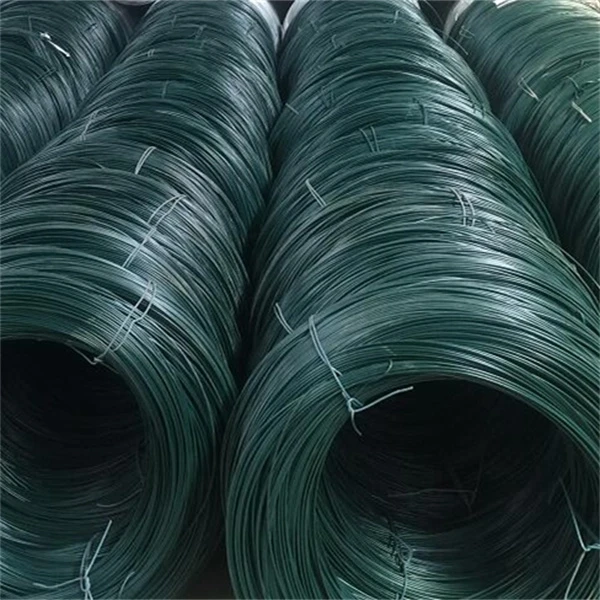12 月 . 23, 2024 19:56 Back to list
Building Durable Gabion Rock Walls for Effective Erosion Control Solutions in China
The Versatility and Benefits of Gabion Rock Walls in China
In the ever-evolving landscape of construction and civil engineering, the use of gabion rock walls has gained significant traction, particularly in China. These structures, made from wire mesh filled with rocks, offer a multitude of advantages that cater to both aesthetic and functional needs. This article delves into the characteristics, applications, and benefits of gabion rock walls, placing special emphasis on their growing popularity in China.
What are Gabion Rock Walls?
Gabion rock walls are constructed using wire mesh cages that are filled with stones or other granular material. The term gabion is derived from the Italian word gabbione, which means big cage. Traditionally used for erosion control, these walls have become increasingly favored for their ability to blend seamlessly into the environment while providing structural integrity.
Characteristics of Gabion Rock Walls
1. Durability Gabion walls are incredibly durable. The wire mesh is typically made from corrosion-resistant materials, ensuring that these structures endure harsh weather conditions and retain their integrity over time.
2. Flexibility One of the significant advantages of gabion rock walls is their flexibility. They can be constructed in various shapes and sizes to meet specific engineering requirements, making them suitable for a range of applications.
3. Cost-Effectiveness Gabion walls can be a more economical choice compared to traditional wall structures, especially when locally sourced stone materials are used. The ease of installation also contributes to lower labor costs.
4. Environmental Impact Gabions can promote vegetation growth, as their design allows for water drainage and the settling of soil, which facilitates plant growth over time. This makes them a sustainable choice for landscaping and erosion control.
Applications of Gabion Rock Walls
Gabion rock walls are versatile and can be used in various applications
1. Erosion Control One of the primary uses of gabion walls is to combat soil erosion along riverbanks, coastal areas, and steep slopes. They serve as a barrier that minimizes the impact of water flow, helping to maintain soil integrity.
china gabion rock wall

2. Retaining Walls In hilly terrain or areas with significant elevation changes, gabion walls are often used as retaining structures. These walls provide the necessary support to hold back soil and prevent landslides, ensuring safe land use.
3. Sound Barriers In urban environments, gabion rock walls can also function as sound barriers. Their mass helps to reduce noise pollution from roads and industrial areas, creating a quieter living environment.
4. Aesthetic Landscaping Gabion walls can be artistically designed to enhance the visual appeal of parks, gardens, and public spaces. Landscapers often integrate these structures as functional elements that also serve a decorative purpose.
Benefits of Gabion Rock Walls in China
In China, the adoption of gabion rock walls has become increasingly popular, particularly in regions prone to soil erosion and landslides. The rapid urbanization and infrastructural development in the country have necessitated sustainable solutions to environmental challenges.
1. Sustainability The focus on sustainable construction practices in China aligns with the use of gabion rock walls, which utilize locally sourced materials and promote ecological balance. This is particularly crucial in areas facing significant environmental degradation.
2. Resistance to Natural Disasters China experiences a variety of natural disasters, including floods and earthquakes. Gabion walls provide a robust solution for disaster mitigation, acting as buffers that protect infrastructure and communities.
3. Cultural Integration The aesthetic versatility of gabion walls allows them to be integrated into traditional Chinese landscapes, enhancing the cultural heritage of public spaces while serving practical purposes.
4. Economic Development The increasing use of gabion rock walls in infrastructure projects contributes to local economies. The production of gabion materials and the associated labor supports job creation and economic growth.
Conclusion
Gabion rock walls are more than mere structural features; they represent a harmonious blend of functionality, sustainability, and beauty. As China continues to face environmental challenges and urban development pressures, the thoughtful integration of gabion walls in construction practices will play a significant role in creating resilient and eco-friendly environments. Whether combating erosion, supporting infrastructure, or enhancing landscapes, gabion rock walls pave the way for a sustainable future in civil engineering.
-
HESCO Gabion Baskets for Coastal Erosion Prevention
NewsAug.22,2025
-
Longevity and Durability of River Rock Gabion Walls
NewsAug.22,2025
-
How to Integrate Gabion 3D Walls in Urban Planning
NewsAug.22,2025
-
Reno Mattress Gabion Applications in Civil Engineering
NewsAug.22,2025
-
How to Install Wire Mesh for Gabion Baskets Properly
NewsAug.22,2025
-
Best Materials for Filling a Chain Link Gabion
NewsAug.22,2025
-
Wire Mesh Thickness Impact on Gabion Wall Load Bearing
NewsAug.12,2025






